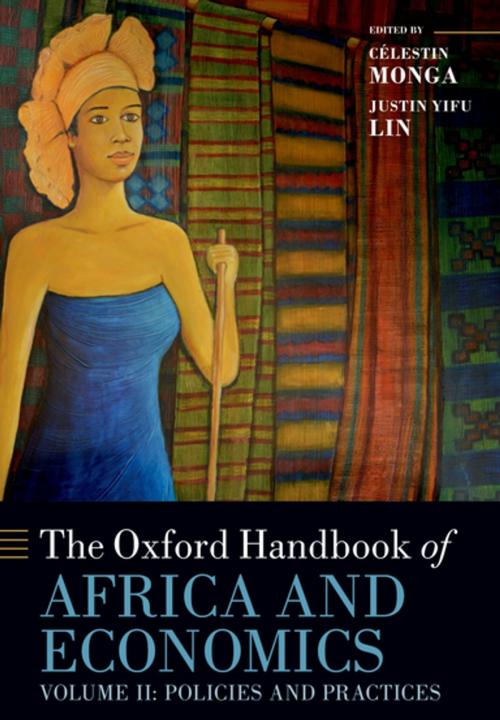The Oxford Handbook of Africa and Economics
Volume 2: Policies and Practices
Business & Finance, Economics, Economic Development, Economic History| Author: | ISBN: | 9780191510748 | |
| Publisher: | OUP Oxford | Publication: | July 2, 2015 |
| Imprint: | OUP Oxford | Language: | English |
| Author: | |
| ISBN: | 9780191510748 |
| Publisher: | OUP Oxford |
| Publication: | July 2, 2015 |
| Imprint: | OUP Oxford |
| Language: | English |
A popular myth about the travails of Africa holds that the continent's long history of poor economic performance reflects the inability of its leaders and policymakers to fulfill the long list of preconditions to be met before sustained growth can be achieved. These conditions are said to vary from the necessary quantity and quality of physical and human capital to the appropriate institutions and business environments. While intellectually charming and often elegantly formulated, that conventional wisdom is actually contradicted by historical evidence and common sense. It also suggests a form of intellectual mimicry that posits a unique path to prosperity for all countries regardless of their level of development and economic structure. In fact, the argument underlining that reasoning is tautological, and the policy prescriptions derived from it are fatally teleological: low-income countries are by definition those where such ingredients are missing. None of today's high-income countries started its growth process with the "required" and complete list of growth ingredients. Unless one truly believes that the continent of Africa-and most developing countries-are ruled predominantly if not exclusively by plutocrats with a high propensity for sadomasochism, the conventional view must be re-examined, debated, and questioned. This volume-the second of the lOxford Handbook of Africa and Economics-reassesses the economic policies and practices observed across the continent since independence. It offers a collection of analyses by some of the leading economists and development thinkers of our time, and reflects a wide range of perspectives and viewpoints. Africa's emergence as a potential economic powerhouse in the years and decades ahead amply justifies the scope and ambition of the book.
A popular myth about the travails of Africa holds that the continent's long history of poor economic performance reflects the inability of its leaders and policymakers to fulfill the long list of preconditions to be met before sustained growth can be achieved. These conditions are said to vary from the necessary quantity and quality of physical and human capital to the appropriate institutions and business environments. While intellectually charming and often elegantly formulated, that conventional wisdom is actually contradicted by historical evidence and common sense. It also suggests a form of intellectual mimicry that posits a unique path to prosperity for all countries regardless of their level of development and economic structure. In fact, the argument underlining that reasoning is tautological, and the policy prescriptions derived from it are fatally teleological: low-income countries are by definition those where such ingredients are missing. None of today's high-income countries started its growth process with the "required" and complete list of growth ingredients. Unless one truly believes that the continent of Africa-and most developing countries-are ruled predominantly if not exclusively by plutocrats with a high propensity for sadomasochism, the conventional view must be re-examined, debated, and questioned. This volume-the second of the lOxford Handbook of Africa and Economics-reassesses the economic policies and practices observed across the continent since independence. It offers a collection of analyses by some of the leading economists and development thinkers of our time, and reflects a wide range of perspectives and viewpoints. Africa's emergence as a potential economic powerhouse in the years and decades ahead amply justifies the scope and ambition of the book.















